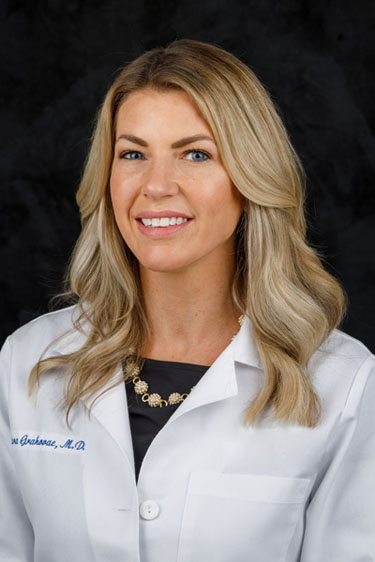
Finding a lump in your breast can be concerning, but not every lump is a sign of cancer. Many times, lumps are breast cysts — harmless fluid-filled sacs that can be treated.
“Cysts are one of the most common concerns women have with their breasts,” says Dr. Tara Grahovac, FACS, board-certified, fellowship-trained breast surgeon with the Beaufort Memorial Breast Care & Surgery Program. “They are considered a type of fibrocystic breast change, which means breast tissue thickens and cysts form. Fibrocystic breast changes can occur throughout life.”
Read More: A Guide to Benign Breast Conditions
Understanding Breast Cysts
Breast cysts can occur at any age but are most common between ages 30 and 49.
“Cysts can develop quickly in one or both breasts, and you may have a single cyst or many,” Dr. Grahovac says. “Because they’re filled with fluid, cysts are often soft to the touch, and you can often move them around with your hand.”
Although the exact cause of breast cysts is unknown, they appear to be associated with hormonal changes. Breast cysts are more common in women who still have periods, and they become less common after menopause. However, women who take hormone replacement therapy may have a higher risk of developing breast cysts.
Some breast cysts cause few or no symptoms, but larger cysts can lead to pain and discomfort. Other symptoms of breast cysts include breast tenderness and nipple discharge that may be cloudy or clear.
Read More: Menopause Treatments to Ease One of Life’s Inevitable Transitions
Types of Breast Cysts
Breast cysts generally fall into two categories:
- Simple cysts. These smooth cysts are surrounded by a thin wall and contain only fluid. Typically, simple cysts pose no health concerns.
- Complex cysts. These cysts may have irregular borders and thick walls and contain a mix of fluid and solid materials, or these cysts may have thin walls but contain a mix of fluid and solid materials.
“Women often ask if breast cysts increase the risk of breast cancer,” Dr. Grahovac says. “They do not, but sometimes it can be difficult to distinguish between a cyst, especially if it is a complex cyst, and cancer with just imaging. Rarely, breast cancers can take on a ‘cyst-like’ appearance. A biopsy may be necessary to tell the difference.”
Diagnosing Breast Cysts
To diagnose a breast cyst, your women’s health provider will discuss your symptoms and health history and perform a physical exam.
Mammograms can detect cysts, but your provider may also order a breast ultrasound to determine the type of cyst you have.
Your provider may also want to take a sample, or biopsy, of the cyst to determine if it is cancerous. During a fine needle biopsy, a small amount of fluid or breast tissue is removed through a thin needle and evaluated for signs of cancer.
Read More: Know Your Lemons: How to Do a Breast Self-Exam
Treating Breast Cysts
Simple breast cysts typically do not require treatment. If cysts cause pain or other symptoms, your health care provider may recommend birth control pills or other medications that help regulate hormone levels.
Depending on the severity of your symptoms, you may need one of the following procedures:
- Cyst draining. Your health care provider will remove fluid from the cyst through a thin needle. Symptoms should improve once the fluid is gone. However, this treatment isn’t always permanent, and cysts may return.
- Surgery. A breast surgeon can surgically remove symptomatic cysts that come back after initial treatment.
You can manage pain, swelling and tenderness associated with cysts or other fibrocystic breast changes at home with the following treatments:
- Taking over-the-counter pain relievers, such as ibuprofen or acetaminophen
- Using a heating pad or ice pack on the cyst
- Wearing supportive, properly fitting bras
If your symptoms don’t improve, call your women’s health provider.
“We understand how concerning it is to find a lump or feel pain,” Dr. Grahovac says. “We can help determine what’s causing your symptoms, whether a breast cyst or another problem.”
Find a Beaufort Memorial women’s health provider who can help you manage your breast health. Request an appointment today.

